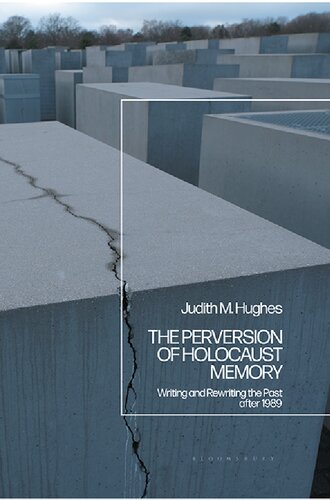

Most ebook files are in PDF format, so you can easily read them using various software such as Foxit Reader or directly on the Google Chrome browser.
Some ebook files are released by publishers in other formats such as .awz, .mobi, .epub, .fb2, etc. You may need to install specific software to read these formats on mobile/PC, such as Calibre.
Please read the tutorial at this link: https://ebookbell.com/faq
We offer FREE conversion to the popular formats you request; however, this may take some time. Therefore, right after payment, please email us, and we will try to provide the service as quickly as possible.
For some exceptional file formats or broken links (if any), please refrain from opening any disputes. Instead, email us first, and we will try to assist within a maximum of 6 hours.
EbookBell Team

4.1
90 reviewsIn the early years of the 21st century it appeared that the memory of the Holocaust was secure in Western Europe; that, in order to gain entry into the European Union, the countries of Eastern Europe would have to acknowledge their compatriots' complicity in genocide. Fifteen year later, the landscape looks starkly different. Shedding fresh light on these developments, The Perversion of Holocaust Memory explores the politicization and distortion of Holocaust remembrance since 1989.
This innovative book opens with an analysis of events across Europe which buttressed confidence in the stability of Holocaust memory and brought home the full extent of nations' participation in the Final Solution. And yet, as Judith M. Hughes reveals in later chapters, mainstream accountability began to crumble as the 21st century progressed: German and Jewish suffering was equated; anti-Semitic rhetoric re-entered contemporary discourse; populist leaders side-stepped inconvenient facts; and, more recently with the revival of ethno-nationalism, Holocaust remembrance has been caught in the backlash of the European refugee crisis.
The four countries analyzed here – France, Germany, Hungary, and Poland – could all claim to be victims of Nazi Germany, the Allies or the Communist Soviet Union but they were also all perpetrators. Ultimately, it is this complex legacy which Hughes adroitly untangles in her sophisticated study of Holocaust memory in modern Europe.